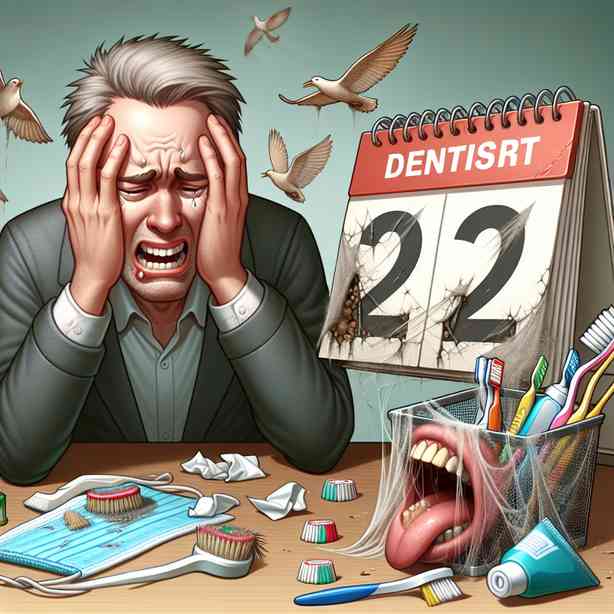
Regretting skipping dental appointments for two years is a common experience for many individuals. There are several reasons why neglecting oral health can lead to regret, and understanding the implications can help motivate better habits in the future.
Initially, skipping dental check-ups can seem harmless. Life gets busy, schedules fill up, and dental visits often feel like a low priority compared to other commitments. However, this seemingly minor neglect can lead to serious consequences. Over time, delayed appointments can result in the development of dental issues that might have been easily preventable. Regular dental visits are crucial because they allow for early detection of potential problems. Dentists can identify cavities, gum disease, and other oral health issues before they escalate into more serious conditions requiring extensive and costly treatments.
Moreover, skipping routine cleanings can lead to the accumulation of plaque and tartar. Plaque is a sticky film of bacteria that forms on teeth and gums. If not removed through professional cleaning, it hardens into tartar, which can only be removed by a dentist. This buildup can lead to periodontal disease, characterized by gum inflammation, infection, and potential tooth loss. The longer one postpones dental visits, the more difficult and complicated the cleaning process becomes, and the higher the chance of experiencing discomfort or pain.
Another critical aspect to consider is the impact on overall health. Recent research has shown a direct link between oral health and systemic health. Poor dental hygiene and untreated dental issues can contribute to various health problems, including heart disease, diabetes, and respiratory infections. The mouth is a gateway to the body, and harmful bacteria from periodontal disease can enter the bloodstream and lead to serious health complications. By neglecting dental care, individuals may inadvertently put their overall health at risk.
Additionally, there’s the emotional and psychological aspect of dental care. Many people experience anxiety or fear associating dental visits with pain or discomfort. This fear can lead to avoidance, creating a cycle that ultimately worsens oral health. The embarrassment of potential dental issues after a long period without professional care can also contribute to feelings of regret. Recognizing the importance of dental health and addressing these fears is essential for breaking the cycle of avoidance.
Furthermore, the financial implications of neglecting dental care cannot be ignored. Regular check-ups are typically less expensive compared to emergency procedures required due to neglected oral health. For instance, a simple filling to address a small cavity can cost considerably less than a root canal or extraction resulting from untreated decay. In the long run, prioritizing dental visits can lead to significant savings and reduce stress related to unforeseen dental problems.
Many individuals who skip dental visits for extended periods find themselves confronted with the reality of their choices only when they start experiencing pain or discomfort. By then, the situation may have escalated, resulting in complicated procedures, multiple appointments, and greater financial strain. It can be disheartening to realize that a small investment of time and money for preventative care could have avoided these issues altogether.
In light of this, it is essential to develop and maintain healthy dental habits. This includes not only regular visits to the dentist but also practicing good oral hygiene at home. Brushing twice a day with fluoride toothpaste, flossing daily, and using mouthwash can significantly help in preventing dental issues. Being proactive about oral health can lead to long-lasting benefits and the prevention of complications that arise from neglect.
For those who may have skipped dental visits for an extended period, now is the perfect time to schedule an appointment. It’s never too late to take charge of your oral health. Dentists are trained to handle cases of neglect with professionalism and understanding. They can provide guidance on how to regain oral health and create a tailored plan to ensure that future visits become a regular part of life.
In conclusion, regretting the decision to skip dental appointments for two years is a common yet avoidable situation. Understanding the consequences of neglect, including the risk of developing dental issues, the impact on overall health, emotional burdens, and financial implications can motivate individuals to prioritize their dental health. Embracing preventative care and addressing dental fears can lead to a healthier, happier life. Taking the first step by scheduling a dental appointment can set the stage for a brighter, healthier future. Remember, your oral health is an integral part of your overall well-being, and dental visits should be regarded as an essential component of self-care.


